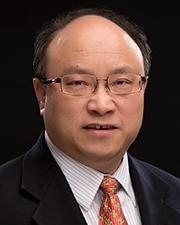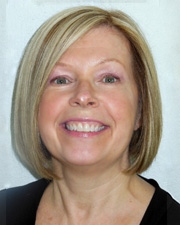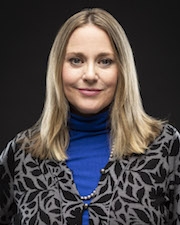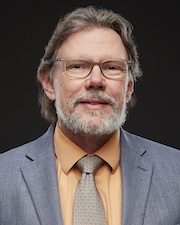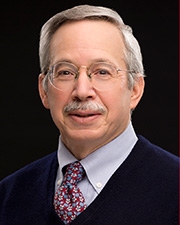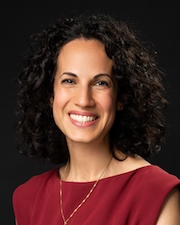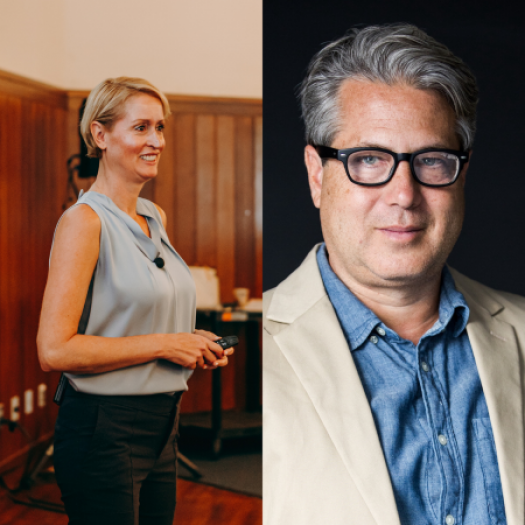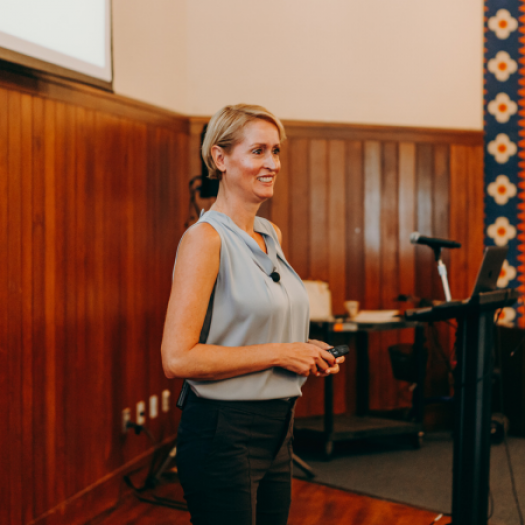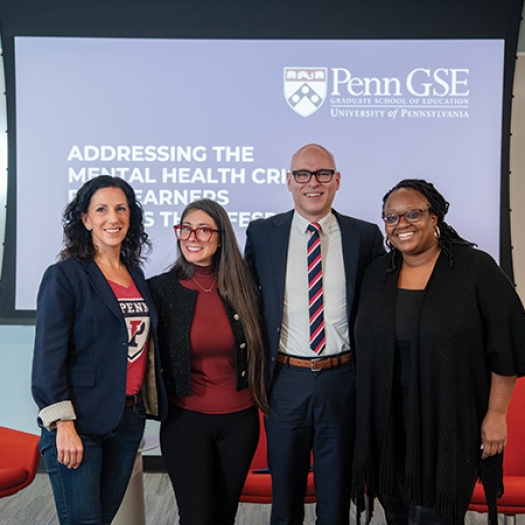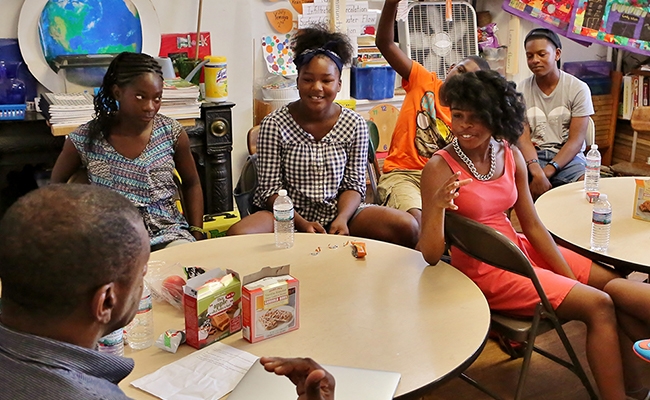Examine the social, emotional, cognitive, and physical aspects of human development within the context of culture and social policy.
The Interdisciplinary Studies in Human Development master's program prepares graduates for careers in academic research, youth programming, research consultation, program evaluation, and for advanced graduate study.
What Sets Us Apart
About the Program
This interdisciplinary human development master’s program offers students the opportunity to create a specialized program of study that leads to an enriched understanding of the diverse perspectives of human development across the lifespan in one of the following career interests: traditional academic research, youth programming and services, urban and ethnic studies, adult development and learning, international programming (e.g., work with NGOs), foundation administration, and program development.
Fall: 4 courses; Spring: 4 courses; Summer: 2 courses
Culminating experienceMaster’s comprehensive examination OR master’s thesis
- Full-Time
- Part-Time
The program requires a total of 10 courses (which can be completed in two semesters plus a summer term over one calendar year or over two-years) in lifespan human development, cultural studies, and research methodologies. The program is designed for pre-professional training and to prepare students to advance within their careers by gaining a better understanding of human development issues.
Interdisciplinary Studies in Human Development gives students a solid foundation for applying to doctoral programs in human development, family studies, and related fields.
Curriculum
Conceptually and methodologically, ISHD students are expected to integrate established psychological approaches with perspectives from other social sciences. You are encouraged to select courses from other disciplines, such as anthropology, sociology, philosophy, and social work. The program of study emphasizes Developmental Foundations; Social, Cultural & Policy Foundations; Quantitative Methods; and Qualitative Methods.
The focus of the Proseminar, which every ISHD student attends, is to demonstrate how research is conceptualized, designed, and implemented. The collection, analysis, and communication of developmental data are also stressed.
The ISHD M.S.Ed. program is designed for maximum flexibility. Students may complete the program at their own pace, taking 3-4 courses in the fall and spring semesters, 0-2 courses in the summer terms, and have the option to stay extra semesters to work on a master’s thesis.
For more information on courses and requirements, visit the Interdisciplinary Studies in Human Development M.S.Ed. program in the University Catalog.
Dual Majors, Concentrations, and Certificate Options
Applied Development and Counseling Skills Concentration
Students who are interested in the field of human development and would like to learn basic applied skills for promoting healthy development in different contexts might consider doing a concentration in Applied Development and Counseling Skills as part of the ISHD M.S.Ed. degree program. This concentration would entail taking three out of the total of 10 courses chosen from a list of pre-approved classes that would fulfill this requirement. “Basic Counseling Skills” is a required course, and an additional two courses chosen from a pre-approved list completes the concentration.
Students must take seven ISHD courses in addition to the three chosen courses that would fulfill the requirements for this area of concentration, which makes a total of 10 courses.
It is important to understand that this concentration does not prepare students to become licensed clinicians or professional counselors. If your interest is in becoming a mental health professional, you should apply to the Counseling and Mental Health Services (CMHS) M.S.Ed. program.
However, if you would like to add basic applied skills to your graduate training in human development, this concentration would be a good option. Students interested in youth programming, or even those just interested in better understanding interpersonal dynamics in the workplace, may benefit from this concentration.
Dual Major in ISHD and SMART (Statistics, Measurement, Assessment, and Research Technology)
Students who are interested in the field of human development and would like to work in research and assessment organizations in the fields of education, psychology, and other human services might consider the option of a dual major in ISHD and SMART. The additional major in SMART (Statistics, Measurement, Assessment, and Research Technology) will provide students with capabilities such as quality of evidence evaluation, statistical analysis, assessment, and psychometrics, as well as on the use of research technology in producing evidence to inform policy and practice.
This option would extend the length of the degree program, requires more than 10 courses, and requires approval from the SMART program after the student has matriculated into ISHD and begun taking courses.
Read more about the M.S.Ed. in SMART.
Dual Major in ISHD and Other Programs
ISHD M.S.Ed. students have the option of doing a dual major with other programs. This option extends the length of the degree program, requires more than 10 courses, and requires approval from the second program after the student has matriculated into ISHD and has begun taking courses. Up to four courses may count toward both majors. Previous ISHD students have double majored in the Reading/Writing/Literacy M.S.Ed. and the M.S.Ed. in SMART. Students may not do a dual major with the Counseling and Mental Health Services program, but can pursue the concentration (see above).
Our Faculty

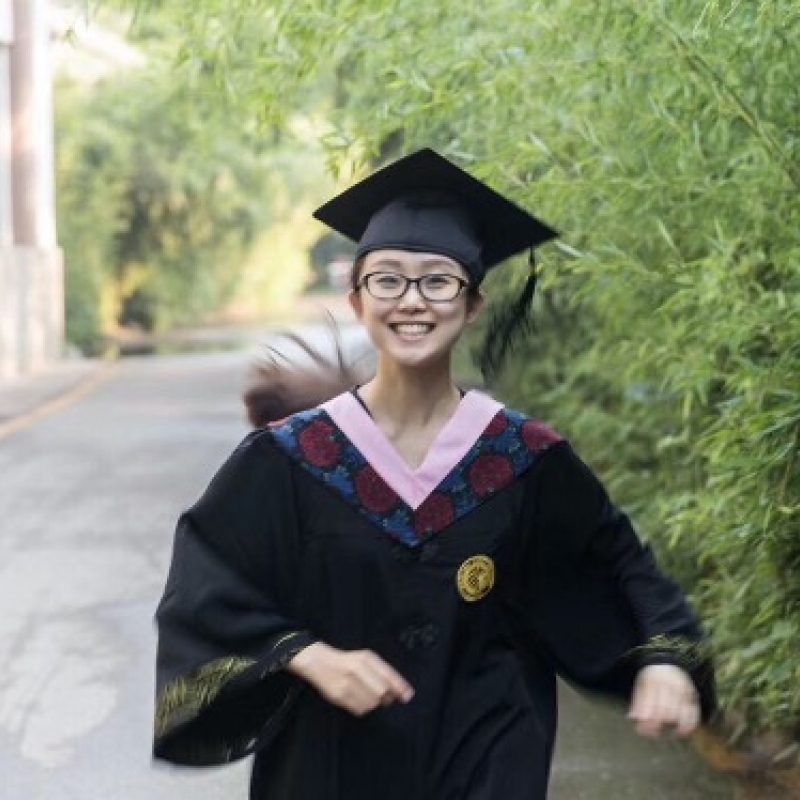
Zijin Zhang
Our Graduates
Our graduates typically seek careers in youth programming and services, urban and ethnic studies, and academic research. Many of our graduates go into doctoral programs in Human Development and Family Studies, and seek research and academic positions afterwards.
Alumni Careers
- Clinical Research Coordinator, University of Pennsylvania
- Clinical Research Coordinator, Children’s Hospital of Philadelphia
- Psychology Teacher, Hangzhou Xuejun High School, China
- Ph.D. student, Developmental Psychology, University of California Riverside
- Ph.D. student, Applied Developmental Psychology, George Mason University
- Healthcare Research Analyst, Advisory Board
- Ph.D. student, Counseling, George Washington University
- Ph.D. student, Applied Human Development, Boston University
- Associate Educational Consultant, Cardinal Education, California
- Research Associate, American Institutes for Research
- Health Initiatives Coordinator, Cornell University
- Senior Research Associate, Alliance for Decision Education
- Social Emotional Learning Specialist, Felton Institute
- Student Services Advisor, UC Davis
Admissions & Financial Aid
Please visit our Admissions and Financial Aid pages for specific information on the application requirements, as well as information on tuition, fees, financial aid, scholarships, and fellowships.
Contact us if you have any questions about the program.
Financial Aid
Graduate School of Education
University of Pennsylvania
3700 Walnut Street
Philadelphia, PA 19104
(215) 898-6415
admissions@gse.upenn.edu
finaid@gse.upenn.edu
Elizabeth Mackenzie, Ph.D.
Adjunct Associate Professor, Program Manager
(215) 898-4176
emackenz@upenn.edu
Please view information from our Admissions and Financial Aid Office for specific information on the cost of this program.
Penn GSE is committed to making your graduate education affordable, and we offer generous scholarships, fellowships, and assistantships.


